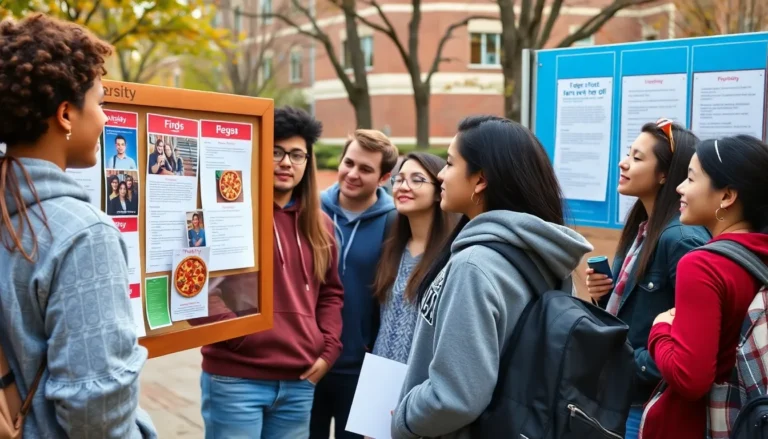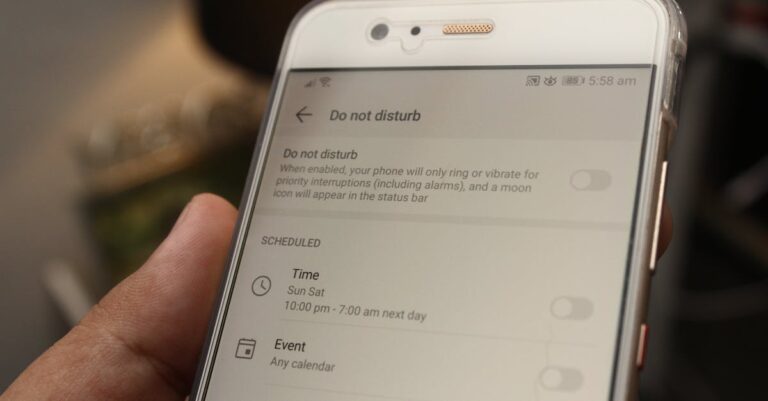Navigating the world of teenage dating can feel like trying to solve a Rubik’s Cube blindfolded. One minute, everything seems colorful and exciting, and the next, it’s a tangled mess of emotions and misunderstandings. As teens explore relationships, they’re not just figuring out who they like; they’re also learning about themselves, their values, and what it means to connect with someone else.
It’s a rollercoaster ride filled with awkward first dates, heart-fluttering crushes, and the occasional dramatic breakup. With social media and peer pressure in the mix, the stakes can feel higher than ever. But don’t worry, this journey can be both hilarious and enlightening. Understanding the ins and outs of teenage dating can make all the difference, helping teens navigate their way through this wild phase of life with confidence and a smile.
Table of Contents
ToggleOverview of Teenagers Dating
Teenagers dating encompasses a range of experiences and emotions. Many teens engage in relationships that help them explore their identity and feelings. Navigating these connections often leads to valuable lessons about trust, communication, and empathy.
Social interactions significantly shape the dating landscape. Peer influence plays a crucial role in determining when and how teens start dating. During high school years, teens frequently feel pressure to conform to social norms regarding relationships.
Emotional challenges can arise during teenage dating. First dates often come with excitement and anxiety, while breakups can lead to feelings of heartbreak and confusion. Such experiences contribute to their personal growth and understanding of healthy relationships.
Technology transforms how teens connect. Social media platforms facilitate communication and help maintain relationships, but they can also introduce complications. Cyberbullying and unrealistic portrayals of love impact teenagers’ perceptions of dating.
Parental guidance remains essential as teens navigate this phase. Open conversations about relationship dynamics and emotional well-being establish a supportive environment. Educating teens on recognizing red flags in relationships fosters healthier partnerships in the long run.
Understanding the complexities of teenage dating provides a roadmap for both teens and their guardians. Awareness of the social and emotional factors involved equips teens to enter relationships thoughtfully. A knowledgeable approach helps them foster confidence and make informed choices in their romantic lives.
Understanding the Teenage Dating Landscape

Teenage dating presents unique challenges and opportunities. Various factors influence how teens approach relationships.
Social Influences on Teen Dating
Peer groups significantly affect dating choices. Friends often set trends that shape interests and expectations. Media also plays a crucial role, as young people are exposed to relationship ideals through movies and social networks. These portrayals can create unrealistic standards. For example, teens may feel pressured to emulate romantic behaviors seen online, which can lead to confusion or disappointment. Cultural backgrounds influence dating norms, guiding how teens engage with potential partners. Ultimately, social influences shape not just who teens date but also how they perceive their experiences.
Emotional Development in Adolescents
Teenagers undergo substantial emotional growth, affecting their dating lives. Strong feelings of love and attraction emerge during this period, leading to exploration of identity and personal values. They learn to communicate their feelings, though this can be challenging. For instance, initial experiences of heartbreak contribute to resilience and understanding of healthy relationships. Emotional highs and lows play a part in building empathy as they navigate the complexities of relationships. Understanding oneself and one’s needs becomes vital. Teen dating serves as a critical environment for developing skills in emotional intelligence.
Benefits of Teenagers Dating
Teenagers dating offers various advantages that contribute to their growth. Engaging in relationships helps develop essential social skills.
Building Social Skills
Interacting with peers teaches effective communication techniques. Each conversation fosters confidence in expressing thoughts. Navigating relationship dynamics cultivates understanding and negotiation abilities. Problem-solving during conflicts enhances camaraderie among teens. Shared experiences like group outings foster teamwork and collaboration. All these interactions contribute to a well-rounded social skill set that benefits future relationships and networking opportunities.
Enhancing Emotional Intelligence
Experiencing the highs and lows of dating increases emotional awareness. Understanding feelings of attraction and infatuation develops empathy. Navigating breakups teaches coping strategies and resilience. Teens learn to articulate emotions, strengthening their self-expression. Recognizing the emotional needs of others fosters compassion. Building this emotional intelligence lays a foundation for healthy relationships in adulthood.
Challenges of Teenagers Dating
Teenagers face several challenges while navigating the dating scene. Understanding these obstacles is crucial for their emotional development.
Peer Pressure and Expectations
Peer pressure often dictates when and how teenagers enter relationships. Friends can influence dating decisions, sometimes leading to premature or mismatched connections. Social norms shape expectations around dating behaviors, compelling teens to conform to what they perceive as acceptable. For instance, a teen might feel compelled to date someone simply because their friends approve. Additionally, social media amplifies these pressures, showcasing glamorous relationships that may seem unattainable. Online comparisons can distort perceptions of love and attraction, fostering insecurities about one’s own experiences. Navigating these pressures requires a strong sense of self and open communication with trusted peers or adults.
Navigating Heartbreak and Rejection
Heartbreak and rejection are integral parts of teenage dating experiences. Each breakup serves as a critical learning opportunity that builds emotional resilience. Teens often encounter feelings of sadness and confusion after a relationship ends. They learn to process disappointment, which helps them develop coping strategies. Handling rejection can also foster empathy, teaching teens to respect the feelings of others. Strong support systems, such as friendships and family, play a pivotal role in mitigating the sting of these emotional challenges. Ultimately, the lessons learned from navigating heartbreak contribute to emotional intelligence, preparing adolescents for future relationships.
Healthy Dating Practices for Teenagers
Establishing healthy dating practices is crucial for teenagers as they navigate relationships. Open communication forms the foundation of any successful relationship. Engaging in honest conversations about feelings promotes mutual understanding and trust. Setting boundaries also plays a significant role, helping teens define what is acceptable and what isn’t in their interactions.
Prioritizing respect ensures that both partners feel valued and equal. Supporting each other’s interests and decisions fosters a positive environment. It’s essential to recognize the importance of individual identities, allowing personal growth within the relationship. Practicing active listening enhances understanding and strengthens connections.
Managing emotions is a vital aspect of healthy dating. Teens should learn to express their feelings appropriately and recognize the emotional needs of their partners. Resolving conflicts peacefully, rather than resorting to arguments, builds resilience and understanding. Reflecting on disagreements can provide insights into improving the relationship.
Balancing dating with other life aspects is necessary. Maintaining friendships and pursuing hobbies while dating promotes a fulfilling life. It’s important to remember that a relationship should enhance one’s life, not consume it. Engaging in group activities can diminish pressure and offer a supportive backdrop to develop connections.
Guidance from parents or trusted adults can further enrich the dating experience. Open discussions about dating dynamics help teens navigate challenges with confidence. Understanding the complexities of relationships enables teenagers to approach dating thoughtfully, laying the groundwork for future healthy partnerships.
Conclusion
Teenagers dating is a multifaceted journey filled with lessons that shape their emotional and social development. As they navigate the ups and downs of relationships they cultivate essential skills that will serve them well into adulthood. The blend of excitement and challenge fosters resilience and empathy helping them understand the importance of communication and trust.
While peer influence and social media can complicate these experiences the role of supportive relationships with friends and family cannot be overstated. Open dialogue about dating dynamics creates a safe space for teens to explore their feelings and establish healthy practices. Ultimately these formative experiences lay the groundwork for meaningful connections in the future.



